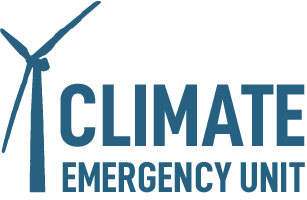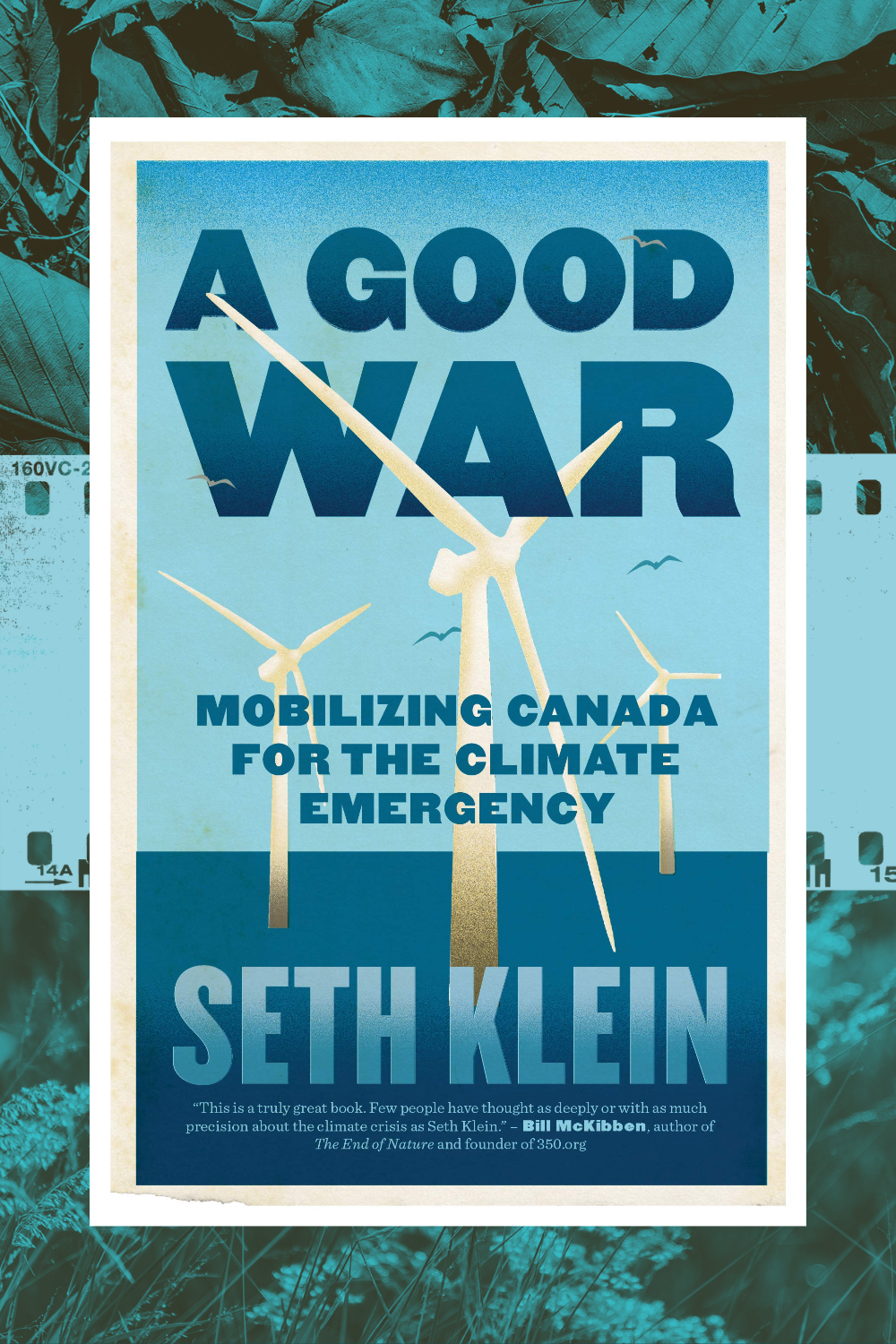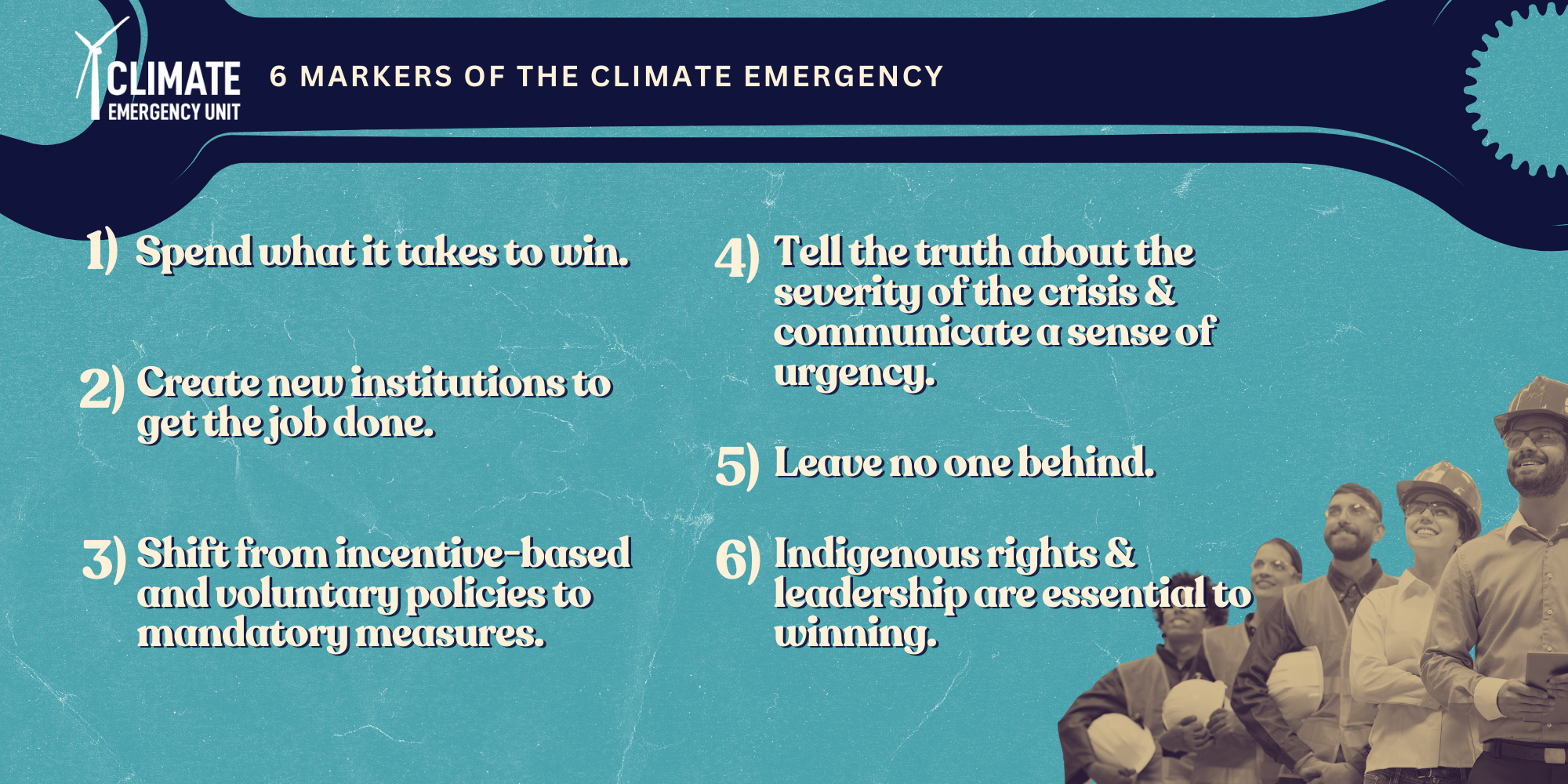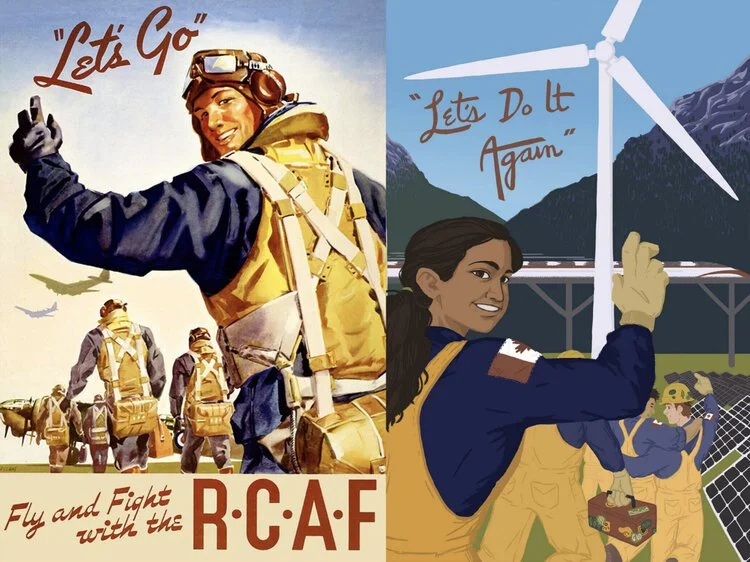The overarching goal of the Climate Emergency Unit is to press for the implementation of wartime-scale policies in Canada to confront the climate crisis.
So far, Canada has not met the challenge.
Despite decades of calls to action, our emissions are not on a path to stave off a horrific future for our children and future generations.
We have run out the clock with distracting debates about incremental changes. Government policies to date have yet to meaningfully bend the curve on our GHG emissions. A new approach is needed. The climate emergency requires a new mindset — to mobilize all of society, galvanize our politics and fundamentally remake our economy.
What is the Climate Emergency Unit?
We believe that true climate mobilization requires approaching this crisis the way we approached an earlier existential threat – the rise of fascism during the Second World War.
Our work is inspired by:
A Good War: Mobilizing Canada for the Climate Emergency
The book focusses on:
How to mobilize Canada for the climate emergency
Lessons from WW2 and how they relate to the climate emergency
Analyzing the speed and scale used during WW2 in production of ships, planes, vehicles, and munitions
Klein’s book calls on us to adopt an entirely new and different approach to the climate crisis than the one we’ve pursued to date.
More on what a wartime approach should look like:

Our Goals
-
We seek to work with federal, provincial, local and Indigenous governments, businesses, trade unions, public institutions and agencies, and industrial/sectoral associations.
-
By engaging with all levels of government and civil society organizations, we work to implement the mobilization ideas detailed in Klein’s book.
We seek to rapidly decarbonize and electrify our society and economy while enhancing social justice and equity.
We contend that linking bold climate action to an ambitious plan to tackle inequality and job insecurity is vital to winning – it’s how we get everyone on the bus in the journey before us.
How do you know when a government gets the emergency?
We believe there are 6 markers for when you know that a government or any large institution has shifted into emergency mode:
Why these 6 Markers?
During the Second World War the Canadian government hit Markers 1 through 4 big time, and partially hit Marker 5.
But with respect to the climate emergency – our current federal and provincial governments are failing on all counts.

Our Work
We welcome the chance to engage with leaders and organizations about their climate plans to date and how to ramp up their impact to fully reflect the emergency we face.
-
We seek to meet with government and civil society leaders, to share ideas about what genuine climate emergency and Green New Deal policies can and should look like.
-
We produce climate emergency op-eds and articles for newspapers and other platforms and are available to give speeches and provide workshops.
-
The CEU seeks to promote the climate emergency campaigns of others, and where needed, initiates campaigns based on our climate emergency framework.
-
When needed, the CEU seeks to bring organizations together (nationally, provincially and by sector) that want to collaborate in the development and implementation of climate emergency campaigns.
-
The CEU seeks to provide high-level climate emergency policy ideas and solutions. Klein’s book contains ideas that can be readily tailored to different types of organizations or agencies across many fields and domains. We are happy to consult with federal departments and agencies, provincial governments, municipalities, Indigenous nations, public enterprises, large businesses, trade unions, political parties, industrial sectors, etc. Our team is keen provide strategic advice and assist in the development of new organization visions, as institutions develop climate emergency plans, seeking to ensure such plans are robust, maximally ambitious, and provide a scientifically-grounded path to carbon-zero.
If you are a leader of a major public or private sector institution or civil society organization and want to know more about the CEU’s consulting services, please email Team Lead Seth Klein: seth@climateemergencyunit.ca
IT’S AN EMERGENCY
We did it once, and we can do it again.
Meet the Climate Emergency Unit team
The Climate Emergency Unit (CEU), a project of the David Suzuki Institute, is a 5-year initiative to mobilize Canada to confront the climate crisis.




